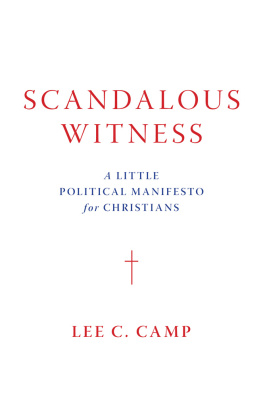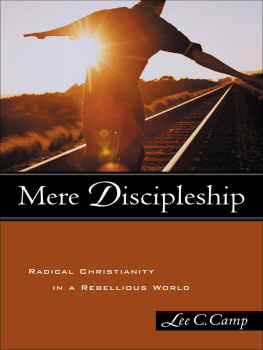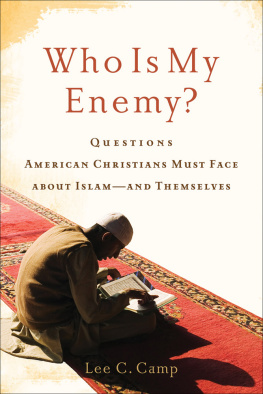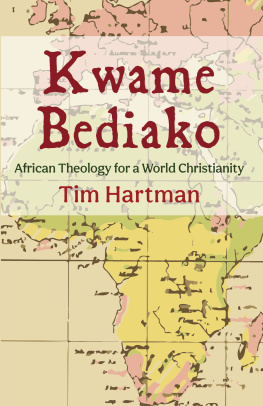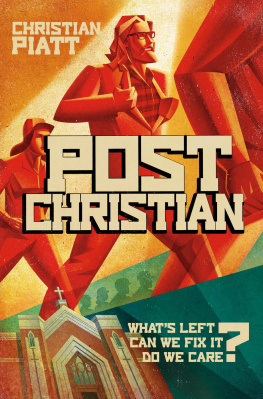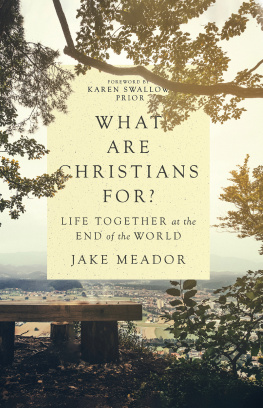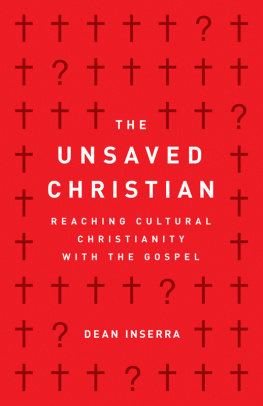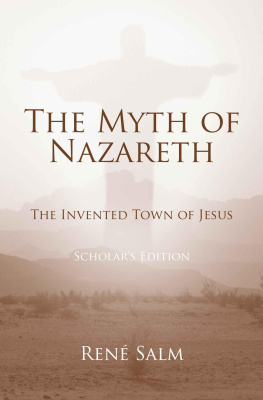The only thing of interest to me as a theologian of the church when it comes to politics is something that dissects and decimates the current Christian alliances with American political parties. Someone once said the mainline church lost its grip among American mainline Christians because it was no longer distinguishable from The New York Times, and someone now needs to warn conservative evangelicals that it is losing its grip on its people because it is no longer distinguishable from Fox News. If you would like an alternative, read this tart, sassy, and, yes, strategic book that presses us to see the church as a politic. Agree or not, hes an equal opportunity critic.
SCOT MCKNIGHT
author of The Jesus Creed
In this well-written and concisely argued work, Lee Camp masterfully traces how the church in America has to a large degree lost its all-important scandalous witness while suggesting ways we can begin to recover it. In the process, Camp provides us with a remarkably clear, carefully nuanced, and undeniably compelling defense of a biblical understanding of the kingdom of God. He brilliantly exposes just how wide the gap is between the biblical understanding of the kingdom, on the one hand, and what currently passes as the Christian faith in America, on the other.
GREG BOYD
author of The Myth of a Christian Nation
With his emancipated evangelical witness, Lee Camp boldly exposits the reality of a gospel faith that is deeply political. This book issues a compelling invitation of gospel hope as the engine for generative public engagement. This is a welcome book, one that is sure to evoke fresh thinking and fresh action.
WALTER BRUEGGEMANN
Columbia Theological Seminary
Bold, urgent, uncompromising, courageous, and prophetic. Every page of Scandalous Witness surprises, shocks, and subverts. And all of it is absolutely necessary. American Christianity has lost its way, and Lee Camp has written the political manifesto the church needs for such a time as this.
RICHARD BECK
author of Stranger God and Trains, Jesus, and Murder: The Gospel According to Johnny Cash
Lee Camps Scandalous Witness is balm for the politically weary Christians soul. In a series of astringent commentaries, Camp impales pretty much every Christian sacred cow, whether right or left politically. Operating from a robust eschatological-ecclesial vision, Camp diagnoses much of what has gone wrong with US Christian politics from within his disciplined theological outlook and offers a contrarian statement that is up to the minute in its relevance. I highly recommend this brief and extremely helpful book.
DAVID GUSHEE
Mercer University, past president of the American Academy of Religion
With a scholars eye and a storytellers knack for narrative, Lee Camp exposes the current inability of American Christianity to bear witness to the gospel. We are asking the wrong questions, taking the wrong turns, and pledging the wrong loyalties. Both parts contrarian and constructionist, Camp finds himself in the family tree of St. Paul, Augustine, Hauerwas, Davison Hunter, and others, challenging those who call themselves Christians to rearrange our bastardized version of the faith toward a more prophetic, historical, and theologically courageous imagination.
DREW HOLCOMB
Magnolia Records recording artist
SCANDALOUS
WITNESS
A Little Political Manifesto for Christians
Lee C. Camp
WILLIAM B. EERDMANS PUBLISHING COMPANY
GRAND RAPIDS, MICHIGAN
Wm. B. Eerdmans Publishing Co.
4035 Park East Court SE, Grand Rapids, Michigan 49546
www.eerdmans.com
2020 Lee C. Camp
All rights reserved
Published 2020
262524232221201234567
ISBN 978-0-8028-7735-2
eISBN 978-1-4674-5819-1
Library of Congress Cataloging-in-Publication Data
A catalog record for this book is available from the Library of Congress.
Unless noted otherwise, all Scripture quotations are from New Revised Standard Version Bible, copyright 1989 National Council of the Churches of Christ in the United States of America. Used by permission. All rights reserved worldwide. http://nrsvbibles.org/
Contents
I dedicate this book to my colleagues at Lipscomb University, a delightful community, which has given me the privilege to teach and play and work and lecture and write and produce, and also to argue and laugh and complain and care about things that matter, and also to know the beauty of old and long friendships. I never anticipated how much joy and adventure an academic community might afford, and I shall always be grateful. Of course I do not presuppose that all my colleagues will agree with the arguments herein. This fact but reminds me again that we are a community that knows how to have worthwhile and good arguments, all while sharing a common love and vocation and tender-kindness one for the other.
For helpful feedback on this project, I would especially like to thank the MDiv Cohort of Hazelip School of Theology (class of 2019), my MDiv Christian Ethics course (fall 2019), and two different Sunday school classes at Otter Creek church. All of these groups honored me by allowing me to work through versions of this material, and they provided immensely helpful feedback. A colloquy of my faculty colleagues also read a version of the manuscript and similarly provided generous feedback. I especially thank Josh Strahan, Lauren White, Phillip Camp, Earl Lavender, Frank Guertin, Terry Briley, Mark Black, Richard Hughes, Walter Surdacki, Jim Arnett, Robert Chandler, Steve Sabin, Adam Boggess, and Stan Wilson. I am grateful for both the leave time and the support generously granted by Provost Craig Bledsoe and Dean Leonard Allen to work on this project. I especially thank Trevor Thompson in his vision to bring this work to press, along with the staff at Eerdmans for making the publication possible.
Finally, I give thanks for my lovely wife Laura, who has continued to live and labor and laugh and love alongside me all these many years now, and my dear sons Chandler, David, and Ben.
A revolution is supposed to be a change that turns everything completely around. But the ideology of political revolution will never change anything except appearances. There will be violence, and power will pass from one party to another, but when the smoke clears and the bodies of all the dead men are underground, the situation will be essentially the same as it was before: there will be a minority of strong men in power exploiting all the others for their own ends. There will be the same greed and cruelty and lust and ambition and avarice and hypocrisy as before.
For the revolutions of men change nothing. The only influence that can really upset the injustice and iniquity of men is the power that breathes in Christian tradition.
THOMAS MERTON
The faith of the Christian is the last great hope of earth.
This must be the case if its most basic claims be true. Christianity claims, at its most basic, that captivity has been taken captive and death has been overcome. More, the fundamental claim of God as three-in-one maintains that it is through the gracious initiative of Gods redemption, the suffering love of Christ, and the resurrecting power of the Spirit that the triumph of life over death has begun. We live now in a time of hopeful anticipation of the consummate triumph of life over death.
We must imagine Christianity first and foremost not as a religion but as an interpretation of human history or, perhaps more pointedly, an assertion regarding human history. But it is not and must not be understood simply as an intellectual interpretation of history but as the sort of interpretation that requires a particular way of life.

